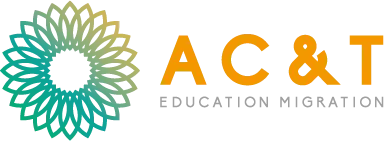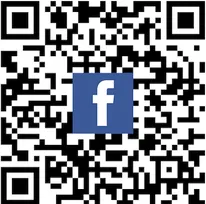Universities
There are 41 Australian universities, of which 3 are private (Bond, Torrens and Notre Dame). Many Australian universities have overseas branch campuses, twinning arrangements and exchange programs for students and teaching staff worldwide. Australian universities have around 7000 agreements with universities (and similar institutions around the world).
The following qualifications are available at Australian universities and approved higher education providers.
UNDERGRADUATE
Diploma
Duration = 1 -2 years
This is offered by some universities and university colleges.
It is the same level as a Diploma that is offered by a VET institution.
Bachelor Degree
Duration = minimum of 3 years
This is the basic university qualification and is required for entry to a profession.
Bachelor Degree(Honours)
Duration = 4 years
A Bachelor Degree with Honours takes an additional year after a Bachelor Degree with a focus on research.
POSTGRADUATE
Graduate Certificate
Duration = 6 months
The Graduate Certificate typically involves broadening individual skills already gained in an undergraduate program, or developing vocational knowledge and skills in a new professional area.
Graduate Diploma
Duration = 12 months
The Graduate Diploma either broadens individual skills obtained in an undergraduate program or develops vocational knowledge and skills in a new professional area.
Masters Degree(Coursework)
Duration = 1 - 2 years
The Masters Degree enhances specific professional or vocational skills.
Masters Degree (Research)
Duration = 1 - 2 years
Doctoral Degree
(Doctor of Philosophy - PhD)
Duration = usually 3 years
English language proficiency
Australian education institutions can only accept students with an appropriate level of English proficiency.
Academic Requirements
Institutions are free to determine the academic requirements for entry to their courses. These requirements depend on:
- The level and content of the study the student has completed in Australia or their home country;
- The level and academic standards of the institution at which they completed their study.
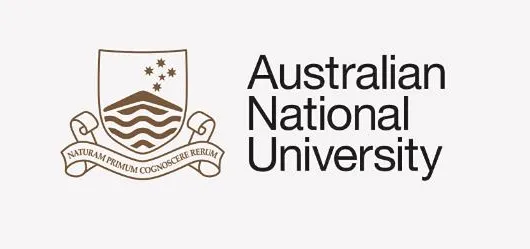
- ANU College of Arts & Social Sciences
- ANU College of Asia & the Pacific
- ANU College of Business & Economics
- ANU College of Engineering & Computer Science
- ANU College of Health & Medicine
- ANU College of Law
- ANU College of Science

UniMelb has achieved outstanding results in the past world university rankings that ranking top 50 in the world and ranking top 30 for many times.
UniMelb is a research university with more than 100 research centres which is the most funded in Australia. UniMelb not only attracts first-class professors and researchers, but also attracts excellent students, statistically, UniMelb is the first choice for more than 60% of student in the top 1% in the college entrance examination each year in Australia. By now, among the alumni of UniMelb, there are 3 Nobel Prize winners and 3 Australian Prime Ministers.
UniMelb is divided in 10 faculties which are design, arts, business and economics, education, engineering, fine arts and music, law, medicine, dentistry and health sciences, science, veterinary and agricultural sciences. As the only university among Go8 which does not accept China Gaokao results, it has strict entry requirements. The academic requirements of bachelor degree is minimum 85% and the academic requirements of master degree is minimum 80%. UniMelb has two intakes in February and July each year. The duration of bachelor program is 3 years and the master program is 1 or 2 years which is depending on student’s study backgrounds. The tuition range from $30,000 to more than $50,000 per year.
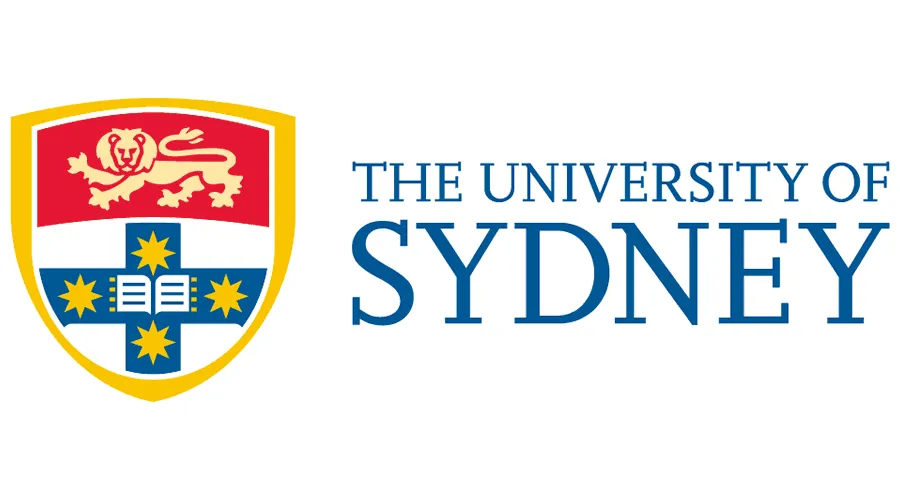
As Australia's third-ranked university, the University of Sydney has been ranked very well in the world university rankings in recent years, all between the top 30-40, and all subject rankings have also achieved excellent results. For more than a century, the University of Sydney has cultivated many outstanding talents in various fields, including six Australian prime ministers, the chairman of the United Nations General Assembly, the president of the World Bank, and three Nobel laureates. At the same time, the University of Sydney has the most billionaires in Australia. The number of graduates from the university.。
The University of Sydney has 16 departments and independent colleges, namely, the Department of Agriculture, Food and Natural Resources, the Department of Architectural Design and Planning, the Department of Humanities and Society, the Department of Dentistry, the Department of Education and Social Engineering, the Department of Engineering and Information Technology, the Department of Health Sciences, Department of Pharmacy, Department of Natural Sciences, Department of Veterinary Medicine, Sydney School of Business, Sydney School of Law, Sydney School of Medicine, Sydney School of Nursing, Sydney School of Arts and Sydney School of Music. Among them, the business school, law school, medical school, and engineering information technology department are among the top in Australia in the same field.
The University of Sydney opens twice a year in February and July, and the tuition fee is more than 30,000 Australian dollars per year. Entry requirements are divided into two aspects: academic and English. The English requirements depend on the course, and generally no less than IELTS 6.5; academic undergraduate courses require a Chinese university score of 80%-85% or more, or directly use the Chinese college entrance examination results For application, the scoreline varies from year to year, and is generally about 50 points higher than the local one; the graduate program requires a score of 75% (211,985 universities) or 80%-85% (non-211 universities).

The main campus of the University of New South Wales is located in Kensington, about 5 kilometers from the center of Sydney, with convenient transportation and easy access to the airport and train station. In addition, the university has several other campuses in Paddington, CBD, Randwick, Cliffbrook, David Phillips, Manly Vale, and the capital Canberra. The University of New South Wales has 9 departments, namely the School of Art and Design, the School of Humanities and Social Sciences, the School of Built Environment, the School of Business, the School of Engineering, the School of Law, the School of Medicine, the School of Natural Sciences and the Canberra National Defense School. Colleges and engineering schools are the strongest. The Business School of the University of New South Wales is one of the largest business schools in the world and one of the only schools in Australia that offers actuarial courses. The College of Engineering is the largest engineering college in Australia and was once assessed by the Australian Institute of Engineers as the university with the largest number of talents in the engineering field.
The University of New South Wales opens three times a year in March, June, and October, and the tuition fee is about 30,000 Australian dollars per year. Undergraduate admission can accept Chinese college entrance examination results. The scores vary according to different provinces. The admission requirements for graduate courses are different for each major.

The University of Queensland has a network of more than 200,000 alumni, including Nobel Prize winners, CEOs of one of the Fortune 500 companies, Oscar winners, and leaders in government, law, science, and public service. The University of Queensland team attaches great importance to the quality of education. Its faculty and research staff have won the Australian University Award (AUTT) in the largest number of Australian universities. The University of Queensland is divided into 3 main campuses: St.Lucia, Ipswich, and Gatton. There are 7 colleges under it: College of Arts, College of Biology and Chemistry, College of Business, Economics and Law, College of Engineering, Natural Sciences and Architecture, College of Health, College of Natural Resources Agriculture and Veterinary Medicine, College of Social and Behavioral Sciences. The seven colleges of the University of Queensland offer more than 6000 courses. In addition to the more outstanding biology, engineering, and health sciences, there are more than 400 undergraduate and postgraduate courses. The main research areas are agricultural trade, agriculture, animal and plant products, anthropology, architecture, and art, Audiovisual, biotechnology, trade, business, social nutrition, computer science, dentistry, economics, education, engineering, environmental management, food industry, service management, IT, international relations, tourism, law, management, medicine, molecular genes Studies, music, occupational disease treatment, pharmacy, physical therapy, psychology, science, social preventive science, social work, linguistics, TESOL education, tropical health, and plant science, etc. In Queensland, the university not only offers the largest variety of undergraduate courses, but it is also the only university offering space engineering, food technology, and agricultural sciences. The school's economics, law, and tourism majors won the 2010 Queensland Regional Education and Learning Excellence Award.
The employment rate and income level of the University of Queensland far exceed the Australian average. Graduates of the University of Queensland enjoy high employment rates and career starting salaries in Australia and the international job market. In the recent graduate survey, the full-time employment rate of undergraduate graduates is as high as 86.6%, which is 5.7 percentage points higher than the Australian average of 80.9%. Its teaching, research and management service network covers three campuses and more than 40 research centers, making it one of the most advanced networks in Australia. The university has Australia's largest and most modern library and the best sports facilities.
The University of Queensland also offers English courses (ICTE-UQ) and pre-university courses (IES-Foundation) to provide bridge courses for high school students to bridge high school and undergraduate courses. After successfully completing the preparatory course and meeting certain standards, students can be assured of receiving an undergraduate admission letter from the University of Queensland.

Monash University has 6 campuses in Australia, namely Berwick, Caulfield, Clayton, Gippsland, Parkville, and Peninsula. Among them, Clayton is 20 kilometers southeast of Melbourne. It is the largest campus of Monash University and the Victorian Science and Technology Agency. The most concentrated area. Outside of Australia, Monash University has two branch campuses in Malaysia and South Africa, research centers in Prato, Italy and Mumbai, India, and the Monash Graduate School of Southeast University in cooperation with Southeast University in Suzhou Industrial Park, China.
Monash University has ten faculties, namely, the School of Art, Design, and Architecture, the School of Arts, the School of Business and Economics, the School of Education, the School of Engineering, the School of Information Technology, the School of Law, the School of Medicine, the School of Mutuality and Health Sciences, the School of Pharmacy and Medicine College of Science and College of Natural Sciences. Like the other eight prestigious universities, Monash University has undergraduate and postgraduate courses. Undergraduate courses are generally 3-4 years. You can accept direct applications from the Chinese college entrance examination results. Postgraduate courses need to meet the requirements for undergraduate results to enter. Unlike other prestigious schools, Monash University has its own diploma courses, which provide another way for students who are not enough to directly enter the undergraduate course, including art and design, liberal arts courses, business courses, and engineering courses. Its diploma course is divided into two stages. The first stage is to finish the 11th grade with an IELTS score of 5.5. The second stage requires the completion of the 12th grade, or the completion of the preparatory course, or the completion of the first stage of the diploma course.

The University of Western Australia has 3 campuses: Crawley, Claremont, and Albany. The main campus, Crawley, is about 5 kilometers away from Perth city center and is located on the beautiful Swan River. Its school buildings are mainly Mediterranean Roman style, mostly built of auburn sandstone, and the open gardens are picturesque, which is recognized by Australia. One of the most beautiful campuses. The campus has complete facilities, including student dormitories, banks, bookstores, kindergartens, coffee shops, computer shops, newsstands, barbershops, travel agencies, Tuesday markets, art galleries, museums, theaters, cinemas, swimming pools, tennis courts, and fitness centers, Optical shops, clinics, pharmacies, dentists, physical therapy centers, etc., can be described as everything.
The University of Western Australia has 9 departments, namely the School of Architecture, Landscape and Visual Arts, the School of Arts, the School of Business, the School of Education, the School of Engineering, the School of Computer and Mathematics, the School of Law, the School of Medicine, Dentistry and Health Sciences, the School of Indigenous Studies and School of Natural Sciences. The more outstanding aspects are business, medicine, especially dentistry, engineering, and so on. The university offers undergraduate and graduate-level courses. Undergraduate admission can accept Chinese college entrance examination results. The academic requirement for postgraduate courses is more than 60%, and the English score is generally IELTS 6.5.
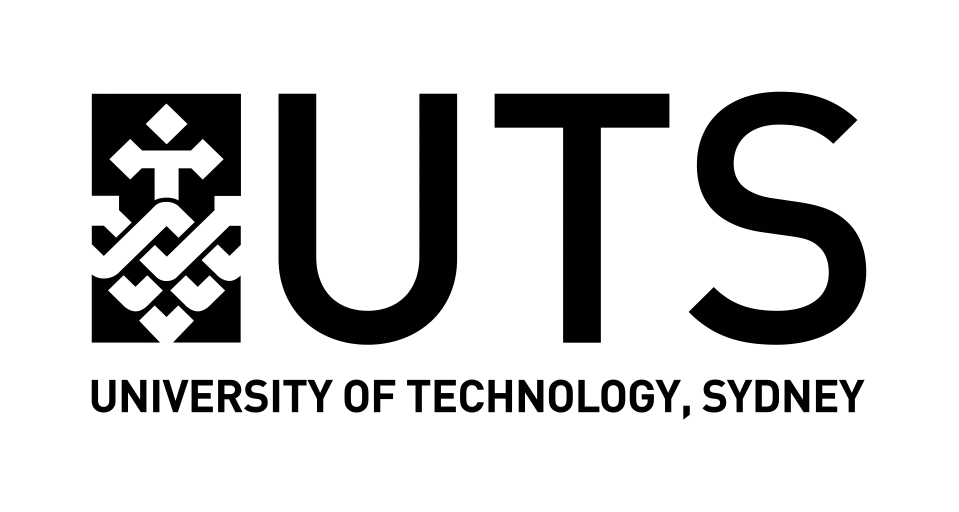
The Sydney University of Technology has two campuses. The main campus, City campus, is in the center of Sydney, right next to the Central Station. The transportation is convenient. It is within walking distance to famous attractions such as Chinatown, Sydney Bridge, and Sydney Opera House. The Kuring-Gai Campus is located in the Chase National Park, 15 kilometers north of Sydney, with a beautiful and peaceful environment.
The Sydney University of Technology has 8 departments, namely the School of Letters and Social Sciences, the School of Business, the School of Design and Architecture, the School of Engineering and Information Technology, the School of Health, the School of Law, the School of Natural Sciences, and the Postgraduate School of Health. The school offers undergraduate, postgraduate, and various research courses to provide convenience for students with different needs. The Insearch of College directly under the University of Technology Sydney is located on the main campus of the university. The courses offered include preparatory courses, diplomas, language, and other bridging courses, which provide students who can’t directly enter the university with one more opportunity and can get an early physical examination.
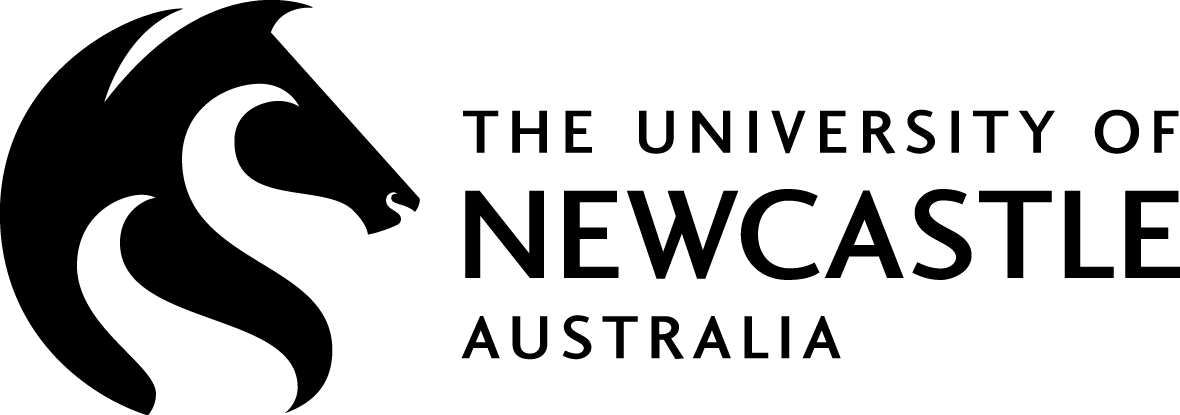
The university has more than 37,000 students and 2,600 employees on 14 campuses and affiliated centers. Therefore, the university has the responsibility to lead by example, lead and develop and maintain our operations as a sustainable community.
In our relatively short history, we have a reputation as an institution dedicated to excellence in education and research. At present, the "QS World University Rankings 2019" ranks 214th in the world. University of Newcastle have been ranked among the top 10 universities in Australia. They have 10 subjects recognized in the top 200 in the world and have far higher than the world level. The research is ranked in the top 8 in Australia, more than 90% of the research is "up to" or "above the world standard", and it is ranked in the top 9 of Australia's total research income (HERDC). Their degree revolves around global learning, jobs, and entrepreneurial opportunities. We offer more than 250 undergraduate and postgraduate courses in five colleges-business and law, education and art, engineering and built environment, health and medicine, and science, as well as more than 150 research masters and doctorate programs.
They are proud to be Australia's largest support program provider. Through the work of our Aboriginal employees, communities, and elders, we have led more than 30 years of Aboriginal education. University of Newcastle has enrolled more than 37,000 students from different backgrounds on its campuses in Newcastle, Central Coast, Port Macquarie, Sydney, and Singapore. The focus is on cultivating the next generation of socially-oriented leaders and businesses around the world.

Featured colleges:
- Business School: Its business school is one of the largest and most prestigious business schools in Australia, with more than 7,000 students, including 1,300 international students. In addition, the school is the first business school in Australia to be accredited by AMBA (American Association of MBAs), AACSB (American Association of Management Schools), and EQUIS (European Management Development Foundation). It is also the only business school in the world that has these three certificates at the same time. One of the 20 business schools. Many majors of the Queensland University of Technology have also been accredited by various other international authorities.
- School of Education: The unique feature of the School of Education is the perfect combination of teaching and research. The college’s research ranks among the top 10 in Australia, and its courses are rated as “high quality” by the School of Scientific Information. In addition, the college was also designated as the 2006 Australian Institute of Outstanding Education (Australian Research Council Invention Foundation)
- IT School: The School of Information Technology is one of the pioneers of Australia's information technology curriculum and enjoys an international reputation for its excellent information technology education and research.
- Law School: The Law School is one of the largest law schools in Australia. Every year, about 90% of graduates can directly find full-time jobs or continue their studies. The college is in a leading position in Australian legal and judicial professional education.
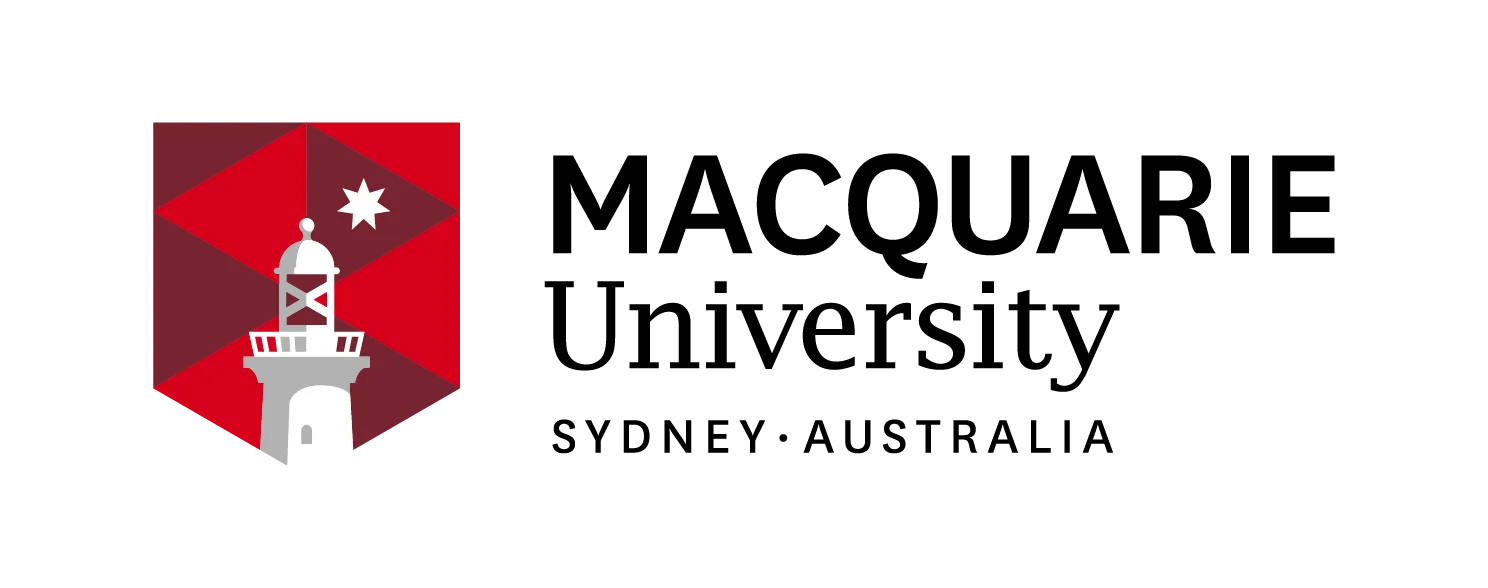
Advantages of Macquarie University
- QS world ranking top 1%; US News 2018 global university ranking 9th in Australia.
- 2018 QILT University with the highest job satisfaction for business and management in Sydney.
- 2018 QILT Sydney has the highest average starting salary for business and management majors.
- 2017 QS five-star university (in the fields of education, employment, scientific research, internationalization, teaching facilities innovation, etc.).
- AACSB accredited business school.
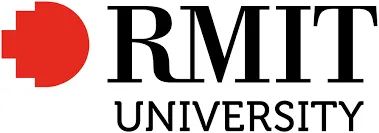
RMIT University has three campuses in Australia: Melbourne City, Brunswick, Bundoora. Among them, the Melbourne City campus, located in the center of Melbourne, is the main campus. It is located in the prosperous second largest city in Australia. Students can enjoy all kinds of conveniences. The Brunswick campus is about 5 kilometers away from Melbourne city center. It has a vast area and modern teaching. Facilities and teaching buildings; Bundoora is located 18 kilometers northeast of Melbourne's city center. In addition to advanced teaching facilities, it also has tennis courts, rugby fields, and other sports venues. RMIT University also has campuses overseas, in Vietnam and Barcelona.
RMIT University has 12 faculties: Architecture, Art and Design, Business, Media and Digital Media, Community Services, Computer and Information Technology, Education and Training, Engineering, Environment and Planning, Health and Medicine, Law, and Natural Sciences. In order to meet the needs of students at all levels, RMIT University offers more than 500 courses, including language courses, foundation courses, certificate courses, diploma courses, undergraduate courses, master courses, and various research courses, so that every student can find The most suitable course.
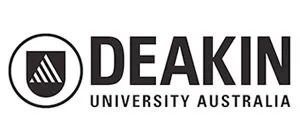
Deakin University has four campuses: Melbourne Burwood, Geelong Waterfront, Geelong Wine Pond, and Warrnambool. No matter which campus you study in, you can enjoy various facilities, including a library, coffee shop and restaurant, and a 24-hour computer laboratory. 24-hour security, medical and health service center, sports and leisure facilities, kindergarten, prayer room. The school will provide students with multi-faceted support and assistance. There are language and study consultants to help check reports and prepare for exams. There is also an international student support group to help students in a more comprehensive way.
Deakin University is divided into 4 major departments: School of Literature and Education (Media and Art, Education, Humanities and Social Sciences, etc.), School of Business and Law (Accounting, Economics, Finance, Information, and Business Analysis, Law, Management and Marketing) ), School of Health (Psychology, Sports and Nutrition, Health and Social Development, Nursing and Midwives, Medicine), School of Natural Sciences, Engineering and Built Environment (Architecture and Environment, Engineering, Information Engineering, Life and Environmental Sciences). Deakin University has its own language center (DUELI), which provides English courses for students who do not meet the language standard, and the Melbourne Institute of Business and Technology (MIBT) provides transitional courses for students who do not meet the academic requirements of the university, and then they can successfully enter Deakin University.

The University of Tasmania provides a creative and challenging learning space and a very comfortable living environment. Its high-quality natural living environment is yearned by people from all over the world. The school also has strong information and human resources outside the school. More than 90,000 graduates around the world and partnerships with local companies have become a powerful human network of the University of Tasmania.
The school offers a variety of different pathways to universities and admission channels, including common Diploma courses, associate degrees (Associate Degree), English pathway courses, and high school preparatory courses. After passing the one-year Diploma course at the school, you can go directly to the second year of the university. The content of the Diploma course includes literature (Arts), education (Education), science (Science), and the attached bachelor's course includes general studies (General Studies), Marine Applied Science, Arts, Computing, Education, Furniture Design, Music Studies, etc.
The school offers many options for combined degrees, such as law and literature, business and information engineering, science and engineering, etc., and credits can be deducted from Diploma and attached bachelor degrees. The eight colleges established by the school include Australian Maritime College (AMC), Arts (Arts), Business (Business), Education (Education), Health Science (Health Science), Law (Law), Science and Technology Engineering (Science), Engineering & Technology), etc.; each college offers a wide range of bachelor courses.
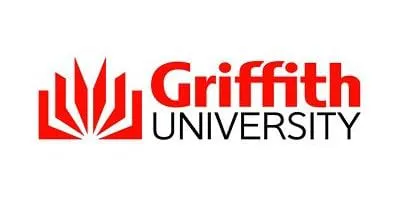
Griffith University is known as one of Australia's most innovative institutions of higher learning. This reputation is based on the university's determination to carry out pioneering projects and interdisciplinary teaching and research, and to actively respond to the needs of the community. Part of the reason:
- Multicultural environment-Griffith University has students from 114 countries
- A variety of innovative and relevant degrees
- Many courses include an internship period
- Graduates have good employability
- First-class student support
- Exchanges in 80 countries
- Competitive tuition and living expenses
- Provide a complete set of English language courses in three centers, including direct English courses for university study
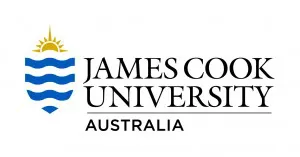
James Cook University offers more than 170 undergraduate and 120 postgraduate courses ranging from bachelor's degree to doctoral degree. Among them, the tropical biological sciences are in a leading position in the world. Disciplines recognized globally include marine biology, coastal and environmental sciences, tropical rain forests, World Tourism Organization Appraisal Society (WTO), marine archaeology, and public health. Its' marine subjects are among the top universities in the world. Their master's degree programs have many unique features. MPA and MBA programs have a considerable reputation in Australia, and master programs in environmental protection, hotel management, project management, hospital management, and other majors are also the school's strengths. In addition, James Cook University can also tailor new master's professional courses tailored to the needs of the market.
James Cook University has campuses in Townsville, Cairns, Singapore, Sydney, Melbourne, and Brisbane. Among them is the newly established campus located in the heart of Brisbane. The school was rated as a five-star university by Shanghai Jiaotong University, China in 2006, and its' student graduation satisfaction ranks among the top. The school adopts a unique teaching method and a small class system so that every student can be guided and cared for by the lecturer. Compared with other public universities in Australia, James Cook University Brisbane Campus (JCUB) can give priority to the job needs of every student, whether it is a part-time job for a student or a full-time job for a graduate, the job opportunities it provides Often only discounts are given to students of the school. JCUB is able to provide its unique internship program (Internship Program) for postgraduate students and provides a better way for students to intern and find employment under the advantage of close ties with local Australian companies.
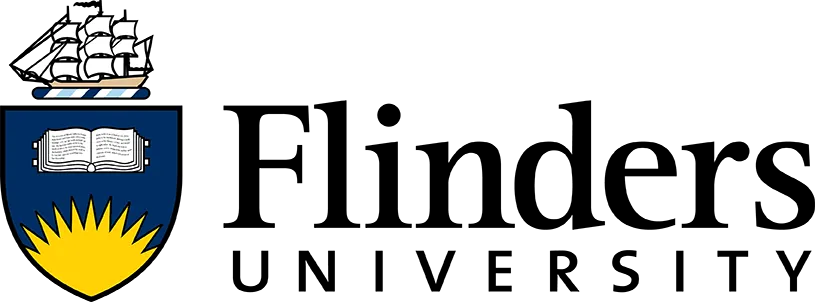
Flinders University is a verdant university and a member of the Innovative Research University (IRU) group. Academically, the university has created an interdisciplinary approach to education, and its' medical school and humanities are among the top ten in the country. The university is ranked among the world's top 500 universities in the academic ranking of world universities. In January 2019, "Times Higher Education" ranked Flinders between 251 and 300 among the world's top universities.
The main campus of the university is located in Bedford Park in the south of Adelaide, about 12 kilometers south of Adelaide city center. The university also has branch campuses in Victoria Square and Tonsley in the city center. It also has some external teaching facilities in South Australia, southwestern Victoria, and the Northern Territory. International students account for 10% of the number of students on campus, and some offshore programs are also offered, mainly in the Asia-Pacific region.
Flinders University offers more than 160 undergraduate and graduate programs, as well as higher degree research guidance in all disciplines. Many courses use new information and communication technologies to complement face-to-face teaching and provide flexible options. The colleges included are:
- School of Business, Government and Law
- School of Education, Psychology and Social Work
- School of Humanities, Arts and Social Sciences
- School of Medicine and Public Health
- School of Nursing and Health Sciences
- School of Science and Engineering
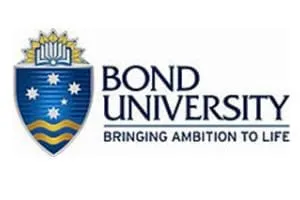
Bond University offers a three-semester academic system a year to help most students obtain bachelor's and master's degrees in a shorter time. Bond not only won the highest score in the 《Good University Guide》 in 2013 but also has the lowest Student to Staff Ratio in Australian universities. The perfect learning environment allows Bond students to obtain More proper care. Just as the one-on-one personalized teaching makes Bond more outstanding than other national universities, Bond's cooperation with medical politics and business gives students more opportunities to have close contact with industry leaders, and it also increases internships and employment in international companies possible.
Bond offers more than three hundred internationally recognized degrees, including the well-known law schools, business schools, Humanities, and Social Sciences, Health Sciences and Medicine, and the Institute of Sustainable Development and Architecture, and so on. The Bond College on the campus also provides Pathway Programs and Bond University English Language Institute specially set up for international students.
All students can use the top academic, technological, and leisure equipment on the campus. Pound also provides a large number of accommodation and food options on the campus, and there are many nearby student dormitories or apartments outside the campus. The school contains more than 70 sports, leisure, and special interest clubs to enable students to grow more diversified.

The school offers a wealth of bachelor and master programs. Its bachelor's courses include Business, Information Technology, Accounting, Engineering, and Science; and the master's courses include Accounting, Business Administration, and Information and Communication Technology, Science. In addition, Western Sydney University also offers pre-master courses.
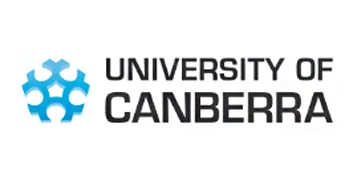
The University of Canberra has been rated as one percent of the highest percentage of universities in the world, ranked 193th in the 2020 Times Higher Education World University Rankings, and ranked in the 2019 Times Higher Education Youth University Rankings 34th among the top 100 young universities in the world.
UC's graduates enjoy a 90% employment rate and starting salaries are higher than the average of Australian universities. Many of our 86,000 alumni have influence in the public and private sectors in 120 countries.
As a university-based in the Australian capital, they cooperate with the government, business, and industry to serve our community and country, and become the capital's window of education to the world. From this favorable perspective, they will relentlessly pursue the current situation of seeking new and better teaching, learning, research, and value-added methods locally and internationally.
Popular courses in each college:
Faculty of Health
- Bachelor of Nursing
- School system: 3 years
- Tuition: $31,000/year
- English requirement: IELTS 7
- The University of Canberra Public Hospital was fully completed in February this year and officially used in July to provide students with more work and hospital internship experience.
- Bachelor of Accounting
- School system: 3 years
- Tuition: $32,300/year
- English requirement: IELTS 6 points, no less than 6.0 in each subject
- Bachelor of Early Childhood and Primary Education
- School system: 4 years
- Tuition: $28,500/year
- English requirement: IELTS 7.5, no less than 7 for each subject, no less than 8 for listening and speaking
- Bachelor of Building and Construction Management
- School system: 4 years
- Tuition: $29,500/year
- English requirement: IELTS 6
- This course is certified by the Australian Association of Quantity Surveyors.。

The school has campuses in Sydney, Melbourne, and Brisbane to facilitate the study of international students. These three campuses are not only well-equipped and small-class teaching but more importantly, there are three admissions a year, so students can shorten the length of study. CQU was selected by the Good University Guide as one of the fastest-growing universities in Australia.
CQU has English classes (ELICOS) on each campus; it provides courses such as general English and English for further studies. Overseas students can also participate in the free reading skills training provided by the school and receive individual counseling. Many branch schools have a three-semester system. The first semester starts in March, the second semester starts in July, and the third semester starts in November. The application for admission is very flexible.
College Introduction:
- Arts, Health and Science
- Business and Law
- Education and Creative Arts
- Engineering and Physical Systems
- Information and Communication
On-campus facilities and services: CQU provides many student services, including libraries, computer equipment, international student advisors, math and communication learning centers, and English language centers. There are also various sports equipment, restaurants, bookstores, travel agencies, hairdressers, etc.
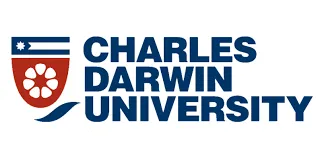
CDU is a member of seven innovative research universities in Australia. The university offers a wide range of higher education degrees and vocational education and training courses and offers flexible study options, including part-time, external, and online learning. According to the Times Higher Education (THE) World University Rankings 2015-16, Charles Darwin University is ranked 250-300 in the world and 15 in Australia. In the 2015 Times Higher Education's list of the top 100 universities within 50 years of its founding, it also ranked 48th in the world, making it the youngest university to be nominated in Australia.
Charles Darwin University is a dual departmental university, which means that the university offers vocational education and training (VET) courses and higher education undergraduate and graduate degrees, covering a wide range of disciplines and disciplines. Its university offers three areas of study:
- School of Engineering, Health, Science, and Environment
- School of Law, Education, Business and Art
- Vocational Education and Training
In the past, the independent Menzies Institute of Health Research was a school of the CDU Intermediate and Advanced Institute. Menzies Health Research Institute is an industry-university cooperation institution, a joint venture between the Menzies Foundation and the University of Sydney. It is located on the campus of the University of Casuarina and the Royal Darwin Hospital. CDU has close ties with Flinders University in South Australia, which itself has many students from the Northern Territory, including the joint management of the Alice Springs Remote Health Center and the Northern Territory Medical Program on the Casuarina CDU campus.
The organizations included in the school are:
College
- School of Academic Language and Learning
- School of Business
- School of Creative Arts and Humanities
- School of Education
- School of Engineering and Information Technology
- School of Environment
- School of Health
- School of Engineering and Information Technology
- School of Law
- School of Psychological and Clinical Sciences
- North Australian Centre for Oil and Gas
- Menzies School of Health Research
- The Northern Institute
- Research Institute for Environment & Livelihoods
- Australian Centre for Indigenous Knowledge and Education(ACIKE)
- Research Centre for Health and Wellbeing
- Centre for Renewable Energy
- Centre for School Leadership, Learning & Development
- International Centre for Education(IGCE)
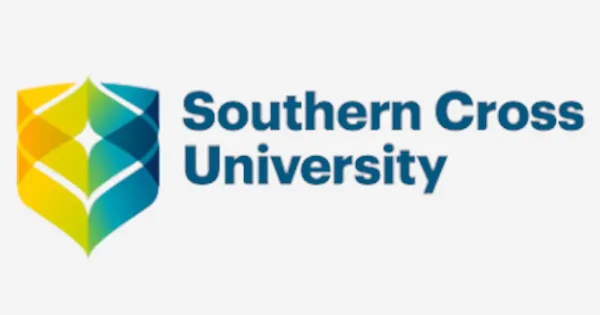
The school has campuses in Australia’s Gold Coast, Lismore and Coffs Harbour, Sydney, Melbourne, and Perth.
School advantage
- Top 500 universities in the world
- Australia's top research
- Australia's number one student service for three consecutive years
- Cheaper tuition
- Focus on the career development of students, provide integrated career development projects such as learning internship training, work-integrated learning and internship projects, and be the winner of the ALTC Award
- The flexible academic system, with a variety of bridging courses such as college promotion, master promotion, etc., allowing you to get your favorite degree
Master of Business Administration
MBA is the abbreviation of the Master of Business Administration. Many students want to study this major after completing an undergraduate degree. However, MBAs in many Australian universities require a certain number of years of management experience, which discourages students who want to study. But there are exceptions to some schools, such as the Southern Cross University MBA, which not only does not require work experience, but can also be combined with other master's diplomas within 2 years to get you a double degree, and even have a chance to get a scholarship!
- Master of Business Administration(MBA)
- School system: 2 years
- Start time: March, July, November
- Cost: $27600/year (Gold Coast campus)
- Entry requirements: Complete an undergraduate degree, IELTS 6.5 or equivalent English level
Southern Cross University's Bachelor of Business (Aviation Management) is a recently emerging popular course. After graduating from this course, you can get both a business undergraduate degree and three types of Australian pilot licenses!
Nursing
- Bachelor of Nursing
- Duration: 3 years
- Start time: March
- 2019 tuition: $26400/year
- Campus: Coffs Harbour, Gold Coast, Lismore campus
- Entrance requirements: OP 13, ATAR 68, English requirement 4 IELTS 7 or equivalent English level
- Graduate Certificate in Australian Nursing (EPIQ)
- Educational system: 0.5 years (15 weeks)
- Campus: Gold Coast
- Start time: January, April, July
- Cost: $15,400 tuition
- Entrance requirements: IELTS 4 7s, you need to submit the letter of determination* to the AHPRA institution first. *Letter of Determination (LOD) is a letter sent by ANMAC to the applicant after the assessment is completed. This is the document provided to the Australian Department of Immigration as evidence of your career assessment
Other medical courses
In addition to the most popular nursing majors, Southern Cross University also offers other medical courses, such as
- Bachelor of Midwifery
- Bachelor of Occupational Therapy
- Bachelor of Podiatry
- Bachelor of Speech Pathology
- Bachelor of Psychological Science
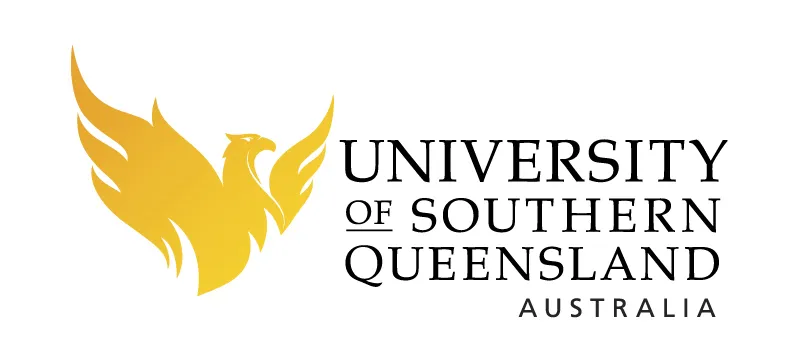
With a strong focus on providing high quality degrees with study options to suits tudents from across the globe to regional Australia, USQ’s research also aims to help regional communities become more resilient and adaptive.
USQ’s excellence in research aims to tackle national and global challenges.Through fostering collaborations and partnerships with government, industry and the research community, USQ delivers applied research outcomes that have global impact.
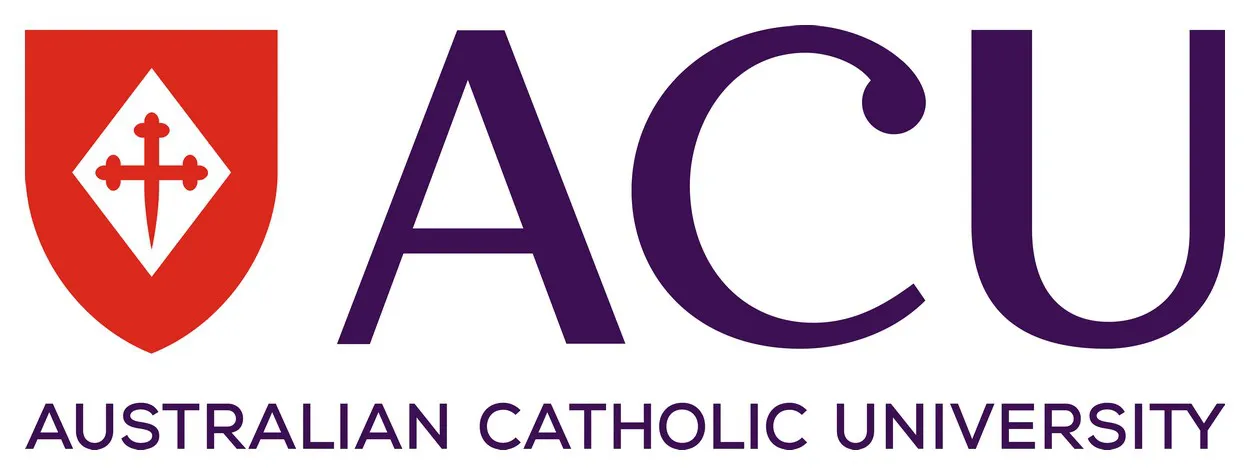
- Sydney Catholic Education College, New South Wales
- Victorian Catholic Education Institute
- Macaulay College of Queensland
- Signadu College of Education, Australian Capital Territory
ACU has a wide range of research institutes and centers, and four colleges.
- Education and Arts-Fields include education, arts and humanities, global studies and international development studies, media communications, social sciences, youth work, and creative arts, visual arts and design.
- Health Science-Fields include counseling, environmental science, exercise physiology, exercise science, mental health, midwifery, nursing, occupational therapy, complementary medicine, physical therapy, public health, psychology, social work, and speech pathology.
- Law and business-fields include accounting and finance, business management, business, human resource management, information technology, law, management, marketing and occupational health, safety and environmental management.
- Theology and Philosophy-Fields include Biblical Studies, Christian Thought, Christian Practice, Liturgy, Ministry, Moral Theology, Religious Studies, Ethics, Bioethics, Metaphysics, World Religious Philosophy, Political Science and Epidemiology.
In 2015, ACU was rated as the most comprehensive institution in the country by the Australian Research Council in its national assessment of research quality "Australian Research Excellence Award (ERA)". Moreover, ACU's "Excellence Index" ranking rose from 35th to 21st. The university also received the highest score of 5 points in the ERA.

In USC, overseas students can not only enjoy the beautiful natural scenery but also learn the latest and improved courses taught by highly qualified teachers to adapt to the pace of social development. This experience of studying and living abroad will surely become an unforgettable memory.
Recommended courses:
- Basic Courses for Overseas Students
- University preparation courses
University undergraduate courses USC has 3 colleges, the College of Arts and Social Sciences, the College of Business, the College of Natural Sciences, Health and Education. Students can complete an undergraduate course in 3 years, or a double degree course in 4 years. The aspects of the course are as follows:
- School of Arts and Social Sciences: Art, computer-based art and design, creative writing, design and communication, environment and cultural relics, international academics, popular culture, communication, social relations, humanities services, journalism, justice, urban planning, society Science, community work
- Business School: Business, Accounting, Financial Planning, Human Resource Management, Information System, International Trade, Marketing, Property Management, Tourism, Information and Communication Technology, Sustainable Tourism
- School of Natural Sciences, Health, and Education: Animal/Plant and Marine Biology, Food and Nutrition, Health, Nurses, Nutrition, Natural Science, Biomedicine, Environmental Health, Environmental Science, Microbiology and Biotechnology, Public Health, Sports Science, Sports and technology
- Double degree: Art + Business, Art + Indonesia and International Trade, Art + Japan and International Trade, Art + Psychology and Human Resource Management, Art + Human Services and Health, Art + Natural Science, Art + Environmental Planning, Art + Psychology, and kinesiology, art + natural science exchange, business + natural science, education + art, education + business, education + natural science
Master's degree courses (mainly courses) include diploma courses, certification courses, and master's degree courses:
- School of Arts and Social Sciences: Communication Certification Course/Graduation Certificate Course/Master's Degree Course, Creative Writing Certification Course/Graduation Certificate Course, Journalism Certification Course/Graduation Certificate Course
- Business School: Business Management Certification Course/Graduation Certificate Course/Master Degree Course, International Trade Certification Course/Graduation Certificate Course/Master Degree Course, Professional Accounting Master Degree Course
- School of Natural Sciences, Health, and Education: Education Diploma Program, Health Master Degree Program, Midwifery Master Degree Program, Vocational Learning Master Degree Program
- Online education (only for local students): Business Management Certification Course/Graduation Certificate Course/Master Degree Course, Financial Planning Certification Course/Graduation Certificate Course/Master Degree Course
Advanced research degree programs including master's degree and doctoral degree
- School of Arts and Social Sciences: Master of Arts, Master/Ph.D. in Creative Arts, Doctor of Philosophy
- Business School: Master of Business, Doctor of Business Management, Doctor of Philosophy
- School of Natural Sciences, Health, and Education: Master of Natural Sciences, Doctor of Philosophy
Overseas exchange students and Overseas students can apply to study at USC for 6 weeks or 1-2 semesters. The study during this period can offset part of the credits of studying in the home country and increase the experience of studying abroad. All high school graduates and college graduates who have entered the university can participate.
English courses:
- English Direct Course: This is a full-time English course, 25 hours per week. Graduates of this course can directly enter USC to study without taking other English tests.
- Academic English courses: There are courses of different levels to lay the foundation for students' future studies.
- Cambridge English Test Preparation Course: This course is designed for students who take the Cambridge English Test, including First Certification of English (FCE), Certification of Advanced English (CAE), and Certification of Proficiency in English (CPE).
- General English courses: divided into many different levels, suitable for students of different levels from elementary to advanced. Including listening, speaking, reading, writing, grammar, vocabulary, and other aspects of learning, involving various daily occasions.
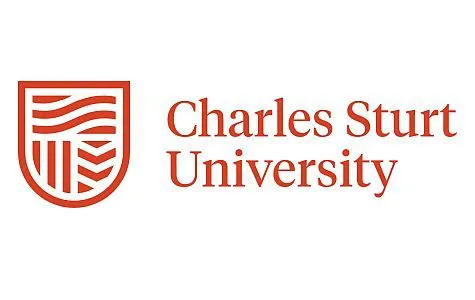
The name of the school is to commemorate the explorer Charles Stout (1795-1869), who was the first group of Europe to explore inland Australia. Charles Sturt University, Australia is a public university funded by the Australian government and a member of the Commonwealth Association of Universities. In order to ensure academic quality and rigor, the lecturer will regularly provide consulting support for the latest research, methods and operational practices emerging from related disciplines.
At Charles Sturt University, we offer more than 300 professional courses covering career fields including:
- Agriculture and Wine Science
- Health-related majors and Pharmacy
- Animal and Veterinary Science
- Business
- Communication and Creative industries
- Engineering
- Environmental Science and Outdoor Recreation
- Sports and Sports Science
- Humanities, Social work and Human Service
- Information and Library Research
- Information technology, Computer and Mathematics
- Medical Science and Dentistry
- Nursing
- Supervision, Law, Safety and Emergency Management
- Psychology
- Science
- Teaching and Education
- Theology and Religious Studies

- ANU College of Arts & Social Sciences
- ANU College of Asia & the Pacific
- ANU College of Business & Economics
- ANU College of Engineering & Computer Science
- ANU College of Health & Medicine
- ANU College of Law
- ANU College of Science

UniMelb has achieved outstanding results in the past world university rankings that ranking top 50 in the world and ranking top 30 for many times.
UniMelb is a research university with more than 100 research centres which is the most funded in Australia. UniMelb not only attracts first-class professors and researchers, but also attracts excellent students, statistically, UniMelb is the first choice for more than 60% of student in the top 1% in the college entrance examination each year in Australia. By now, among the alumni of UniMelb, there are 3 Nobel Prize winners and 3 Australian Prime Ministers.
UniMelb is divided in 10 faculties which are design, arts, business and economics, education, engineering, fine arts and music, law, medicine, dentistry and health sciences, science, veterinary and agricultural sciences. As the only university among Go8 which does not accept China Gaokao results, it has strict entry requirements. The academic requirements of bachelor degree is minimum 85% and the academic requirements of master degree is minimum 80%. UniMelb has two intakes in February and July each year. The duration of bachelor program is 3 years and the master program is 1 or 2 years which is depending on student’s study backgrounds. The tuition range from $30,000 to more than $50,000 per year.

As Australia's third-ranked university, the University of Sydney has been ranked very well in the world university rankings in recent years, all between the top 30-40, and all subject rankings have also achieved excellent results. For more than a century, the University of Sydney has cultivated many outstanding talents in various fields, including six Australian prime ministers, the chairman of the United Nations General Assembly, the president of the World Bank, and three Nobel laureates. At the same time, the University of Sydney has the most billionaires in Australia. The number of graduates from the university.。
The University of Sydney has 16 departments and independent colleges, namely, the Department of Agriculture, Food and Natural Resources, the Department of Architectural Design and Planning, the Department of Humanities and Society, the Department of Dentistry, the Department of Education and Social Engineering, the Department of Engineering and Information Technology, the Department of Health Sciences, Department of Pharmacy, Department of Natural Sciences, Department of Veterinary Medicine, Sydney School of Business, Sydney School of Law, Sydney School of Medicine, Sydney School of Nursing, Sydney School of Arts and Sydney School of Music. Among them, the business school, law school, medical school, and engineering information technology department are among the top in Australia in the same field.
The University of Sydney opens twice a year in February and July, and the tuition fee is more than 30,000 Australian dollars per year. Entry requirements are divided into two aspects: academic and English. The English requirements depend on the course, and generally no less than IELTS 6.5; academic undergraduate courses require a Chinese university score of 80%-85% or more, or directly use the Chinese college entrance examination results For application, the scoreline varies from year to year, and is generally about 50 points higher than the local one; the graduate program requires a score of 75% (211,985 universities) or 80%-85% (non-211 universities).

The main campus of the University of New South Wales is located in Kensington, about 5 kilometers from the center of Sydney, with convenient transportation and easy access to the airport and train station. In addition, the university has several other campuses in Paddington, CBD, Randwick, Cliffbrook, David Phillips, Manly Vale, and the capital Canberra. The University of New South Wales has 9 departments, namely the School of Art and Design, the School of Humanities and Social Sciences, the School of Built Environment, the School of Business, the School of Engineering, the School of Law, the School of Medicine, the School of Natural Sciences and the Canberra National Defense School. Colleges and engineering schools are the strongest. The Business School of the University of New South Wales is one of the largest business schools in the world and one of the only schools in Australia that offers actuarial courses. The College of Engineering is the largest engineering college in Australia and was once assessed by the Australian Institute of Engineers as the university with the largest number of talents in the engineering field.
The University of New South Wales opens three times a year in March, June, and October, and the tuition fee is about 30,000 Australian dollars per year. Undergraduate admission can accept Chinese college entrance examination results. The scores vary according to different provinces. The admission requirements for graduate courses are different for each major.

The University of Queensland has a network of more than 200,000 alumni, including Nobel Prize winners, CEOs of one of the Fortune 500 companies, Oscar winners, and leaders in government, law, science, and public service. The University of Queensland team attaches great importance to the quality of education. Its faculty and research staff have won the Australian University Award (AUTT) in the largest number of Australian universities. The University of Queensland is divided into 3 main campuses: St.Lucia, Ipswich, and Gatton. There are 7 colleges under it: College of Arts, College of Biology and Chemistry, College of Business, Economics and Law, College of Engineering, Natural Sciences and Architecture, College of Health, College of Natural Resources Agriculture and Veterinary Medicine, College of Social and Behavioral Sciences. The seven colleges of the University of Queensland offer more than 6000 courses. In addition to the more outstanding biology, engineering, and health sciences, there are more than 400 undergraduate and postgraduate courses. The main research areas are agricultural trade, agriculture, animal and plant products, anthropology, architecture, and art, Audiovisual, biotechnology, trade, business, social nutrition, computer science, dentistry, economics, education, engineering, environmental management, food industry, service management, IT, international relations, tourism, law, management, medicine, molecular genes Studies, music, occupational disease treatment, pharmacy, physical therapy, psychology, science, social preventive science, social work, linguistics, TESOL education, tropical health, and plant science, etc. In Queensland, the university not only offers the largest variety of undergraduate courses, but it is also the only university offering space engineering, food technology, and agricultural sciences. The school's economics, law, and tourism majors won the 2010 Queensland Regional Education and Learning Excellence Award.
The employment rate and income level of the University of Queensland far exceed the Australian average. Graduates of the University of Queensland enjoy high employment rates and career starting salaries in Australia and the international job market. In the recent graduate survey, the full-time employment rate of undergraduate graduates is as high as 86.6%, which is 5.7 percentage points higher than the Australian average of 80.9%. Its teaching, research and management service network covers three campuses and more than 40 research centers, making it one of the most advanced networks in Australia. The university has Australia's largest and most modern library and the best sports facilities.
The University of Queensland also offers English courses (ICTE-UQ) and pre-university courses (IES-Foundation) to provide bridge courses for high school students to bridge high school and undergraduate courses. After successfully completing the preparatory course and meeting certain standards, students can be assured of receiving an undergraduate admission letter from the University of Queensland.

Monash University has 6 campuses in Australia, namely Berwick, Caulfield, Clayton, Gippsland, Parkville, and Peninsula. Among them, Clayton is 20 kilometers southeast of Melbourne. It is the largest campus of Monash University and the Victorian Science and Technology Agency. The most concentrated area. Outside of Australia, Monash University has two branch campuses in Malaysia and South Africa, research centers in Prato, Italy and Mumbai, India, and the Monash Graduate School of Southeast University in cooperation with Southeast University in Suzhou Industrial Park, China.
Monash University has ten faculties, namely, the School of Art, Design, and Architecture, the School of Arts, the School of Business and Economics, the School of Education, the School of Engineering, the School of Information Technology, the School of Law, the School of Medicine, the School of Mutuality and Health Sciences, the School of Pharmacy and Medicine College of Science and College of Natural Sciences. Like the other eight prestigious universities, Monash University has undergraduate and postgraduate courses. Undergraduate courses are generally 3-4 years. You can accept direct applications from the Chinese college entrance examination results. Postgraduate courses need to meet the requirements for undergraduate results to enter. Unlike other prestigious schools, Monash University has its own diploma courses, which provide another way for students who are not enough to directly enter the undergraduate course, including art and design, liberal arts courses, business courses, and engineering courses. Its diploma course is divided into two stages. The first stage is to finish the 11th grade with an IELTS score of 5.5. The second stage requires the completion of the 12th grade, or the completion of the preparatory course, or the completion of the first stage of the diploma course.

The University of Western Australia has 3 campuses: Crawley, Claremont, and Albany. The main campus, Crawley, is about 5 kilometers away from Perth city center and is located on the beautiful Swan River. Its school buildings are mainly Mediterranean Roman style, mostly built of auburn sandstone, and the open gardens are picturesque, which is recognized by Australia. One of the most beautiful campuses. The campus has complete facilities, including student dormitories, banks, bookstores, kindergartens, coffee shops, computer shops, newsstands, barbershops, travel agencies, Tuesday markets, art galleries, museums, theaters, cinemas, swimming pools, tennis courts, and fitness centers, Optical shops, clinics, pharmacies, dentists, physical therapy centers, etc., can be described as everything.
The University of Western Australia has 9 departments, namely the School of Architecture, Landscape and Visual Arts, the School of Arts, the School of Business, the School of Education, the School of Engineering, the School of Computer and Mathematics, the School of Law, the School of Medicine, Dentistry and Health Sciences, the School of Indigenous Studies and School of Natural Sciences. The more outstanding aspects are business, medicine, especially dentistry, engineering, and so on. The university offers undergraduate and graduate-level courses. Undergraduate admission can accept Chinese college entrance examination results. The academic requirement for postgraduate courses is more than 60%, and the English score is generally IELTS 6.5.

The Sydney University of Technology has two campuses. The main campus, City campus, is in the center of Sydney, right next to the Central Station. The transportation is convenient. It is within walking distance to famous attractions such as Chinatown, Sydney Bridge, and Sydney Opera House. The Kuring-Gai Campus is located in the Chase National Park, 15 kilometers north of Sydney, with a beautiful and peaceful environment.
The Sydney University of Technology has 8 departments, namely the School of Letters and Social Sciences, the School of Business, the School of Design and Architecture, the School of Engineering and Information Technology, the School of Health, the School of Law, the School of Natural Sciences, and the Postgraduate School of Health. The school offers undergraduate, postgraduate, and various research courses to provide convenience for students with different needs. The Insearch of College directly under the University of Technology Sydney is located on the main campus of the university. The courses offered include preparatory courses, diplomas, language, and other bridging courses, which provide students who can’t directly enter the university with one more opportunity and can get an early physical examination.

The university has more than 37,000 students and 2,600 employees on 14 campuses and affiliated centers. Therefore, the university has the responsibility to lead by example, lead and develop and maintain our operations as a sustainable community.
In our relatively short history, we have a reputation as an institution dedicated to excellence in education and research. At present, the "QS World University Rankings 2019" ranks 214th in the world. University of Newcastle have been ranked among the top 10 universities in Australia. They have 10 subjects recognized in the top 200 in the world and have far higher than the world level. The research is ranked in the top 8 in Australia, more than 90% of the research is "up to" or "above the world standard", and it is ranked in the top 9 of Australia's total research income (HERDC). Their degree revolves around global learning, jobs, and entrepreneurial opportunities. We offer more than 250 undergraduate and postgraduate courses in five colleges-business and law, education and art, engineering and built environment, health and medicine, and science, as well as more than 150 research masters and doctorate programs.
They are proud to be Australia's largest support program provider. Through the work of our Aboriginal employees, communities, and elders, we have led more than 30 years of Aboriginal education. University of Newcastle has enrolled more than 37,000 students from different backgrounds on its campuses in Newcastle, Central Coast, Port Macquarie, Sydney, and Singapore. The focus is on cultivating the next generation of socially-oriented leaders and businesses around the world.

Featured colleges:
- Business School: Its business school is one of the largest and most prestigious business schools in Australia, with more than 7,000 students, including 1,300 international students. In addition, the school is the first business school in Australia to be accredited by AMBA (American Association of MBAs), AACSB (American Association of Management Schools), and EQUIS (European Management Development Foundation). It is also the only business school in the world that has these three certificates at the same time. One of the 20 business schools. Many majors of the Queensland University of Technology have also been accredited by various other international authorities.
- School of Education: The unique feature of the School of Education is the perfect combination of teaching and research. The college’s research ranks among the top 10 in Australia, and its courses are rated as “high quality” by the School of Scientific Information. In addition, the college was also designated as the 2006 Australian Institute of Outstanding Education (Australian Research Council Invention Foundation)
- IT School: The School of Information Technology is one of the pioneers of Australia's information technology curriculum and enjoys an international reputation for its excellent information technology education and research.
- Law School: The Law School is one of the largest law schools in Australia. Every year, about 90% of graduates can directly find full-time jobs or continue their studies. The college is in a leading position in Australian legal and judicial professional education.

Advantages of Macquarie University
- QS world ranking top 1%; US News 2018 global university ranking 9th in Australia.
- 2018 QILT University with the highest job satisfaction for business and management in Sydney.
- 2018 QILT Sydney has the highest average starting salary for business and management majors.
- 2017 QS five-star university (in the fields of education, employment, scientific research, internationalization, teaching facilities innovation, etc.).
- AACSB accredited business school.

RMIT University has three campuses in Australia: Melbourne City, Brunswick, Bundoora. Among them, the Melbourne City campus, located in the center of Melbourne, is the main campus. It is located in the prosperous second largest city in Australia. Students can enjoy all kinds of conveniences. The Brunswick campus is about 5 kilometers away from Melbourne city center. It has a vast area and modern teaching. Facilities and teaching buildings; Bundoora is located 18 kilometers northeast of Melbourne's city center. In addition to advanced teaching facilities, it also has tennis courts, rugby fields, and other sports venues. RMIT University also has campuses overseas, in Vietnam and Barcelona.
RMIT University has 12 faculties: Architecture, Art and Design, Business, Media and Digital Media, Community Services, Computer and Information Technology, Education and Training, Engineering, Environment and Planning, Health and Medicine, Law, and Natural Sciences. In order to meet the needs of students at all levels, RMIT University offers more than 500 courses, including language courses, foundation courses, certificate courses, diploma courses, undergraduate courses, master courses, and various research courses, so that every student can find The most suitable course.

Deakin University has four campuses: Melbourne Burwood, Geelong Waterfront, Geelong Wine Pond, and Warrnambool. No matter which campus you study in, you can enjoy various facilities, including a library, coffee shop and restaurant, and a 24-hour computer laboratory. 24-hour security, medical and health service center, sports and leisure facilities, kindergarten, prayer room. The school will provide students with multi-faceted support and assistance. There are language and study consultants to help check reports and prepare for exams. There is also an international student support group to help students in a more comprehensive way.
Deakin University is divided into 4 major departments: School of Literature and Education (Media and Art, Education, Humanities and Social Sciences, etc.), School of Business and Law (Accounting, Economics, Finance, Information, and Business Analysis, Law, Management and Marketing) ), School of Health (Psychology, Sports and Nutrition, Health and Social Development, Nursing and Midwives, Medicine), School of Natural Sciences, Engineering and Built Environment (Architecture and Environment, Engineering, Information Engineering, Life and Environmental Sciences). Deakin University has its own language center (DUELI), which provides English courses for students who do not meet the language standard, and the Melbourne Institute of Business and Technology (MIBT) provides transitional courses for students who do not meet the academic requirements of the university, and then they can successfully enter Deakin University.

The University of Tasmania provides a creative and challenging learning space and a very comfortable living environment. Its high-quality natural living environment is yearned by people from all over the world. The school also has strong information and human resources outside the school. More than 90,000 graduates around the world and partnerships with local companies have become a powerful human network of the University of Tasmania.
The school offers a variety of different pathways to universities and admission channels, including common Diploma courses, associate degrees (Associate Degree), English pathway courses, and high school preparatory courses. After passing the one-year Diploma course at the school, you can go directly to the second year of the university. The content of the Diploma course includes literature (Arts), education (Education), science (Science), and the attached bachelor's course includes general studies (General Studies), Marine Applied Science, Arts, Computing, Education, Furniture Design, Music Studies, etc.
The school offers many options for combined degrees, such as law and literature, business and information engineering, science and engineering, etc., and credits can be deducted from Diploma and attached bachelor degrees. The eight colleges established by the school include Australian Maritime College (AMC), Arts (Arts), Business (Business), Education (Education), Health Science (Health Science), Law (Law), Science and Technology Engineering (Science), Engineering & Technology), etc.; each college offers a wide range of bachelor courses.

Griffith University is known as one of Australia's most innovative institutions of higher learning. This reputation is based on the university's determination to carry out pioneering projects and interdisciplinary teaching and research, and to actively respond to the needs of the community. Part of the reason:
- Multicultural environment-Griffith University has students from 114 countries
- A variety of innovative and relevant degrees
- Many courses include an internship period
- Graduates have good employability
- First-class student support
- Exchanges in 80 countries
- Competitive tuition and living expenses
- Provide a complete set of English language courses in three centers, including direct English courses for university study

James Cook University offers more than 170 undergraduate and 120 postgraduate courses ranging from bachelor's degree to doctoral degree. Among them, the tropical biological sciences are in a leading position in the world. Disciplines recognized globally include marine biology, coastal and environmental sciences, tropical rain forests, World Tourism Organization Appraisal Society (WTO), marine archaeology, and public health. Its' marine subjects are among the top universities in the world. Their master's degree programs have many unique features. MPA and MBA programs have a considerable reputation in Australia, and master programs in environmental protection, hotel management, project management, hospital management, and other majors are also the school's strengths. In addition, James Cook University can also tailor new master's professional courses tailored to the needs of the market.
James Cook University has campuses in Townsville, Cairns, Singapore, Sydney, Melbourne, and Brisbane. Among them is the newly established campus located in the heart of Brisbane. The school was rated as a five-star university by Shanghai Jiaotong University, China in 2006, and its' student graduation satisfaction ranks among the top. The school adopts a unique teaching method and a small class system so that every student can be guided and cared for by the lecturer. Compared with other public universities in Australia, James Cook University Brisbane Campus (JCUB) can give priority to the job needs of every student, whether it is a part-time job for a student or a full-time job for a graduate, the job opportunities it provides Often only discounts are given to students of the school. JCUB is able to provide its unique internship program (Internship Program) for postgraduate students and provides a better way for students to intern and find employment under the advantage of close ties with local Australian companies.

Flinders University is a verdant university and a member of the Innovative Research University (IRU) group. Academically, the university has created an interdisciplinary approach to education, and its' medical school and humanities are among the top ten in the country. The university is ranked among the world's top 500 universities in the academic ranking of world universities. In January 2019, "Times Higher Education" ranked Flinders between 251 and 300 among the world's top universities.
The main campus of the university is located in Bedford Park in the south of Adelaide, about 12 kilometers south of Adelaide city center. The university also has branch campuses in Victoria Square and Tonsley in the city center. It also has some external teaching facilities in South Australia, southwestern Victoria, and the Northern Territory. International students account for 10% of the number of students on campus, and some offshore programs are also offered, mainly in the Asia-Pacific region.
Flinders University offers more than 160 undergraduate and graduate programs, as well as higher degree research guidance in all disciplines. Many courses use new information and communication technologies to complement face-to-face teaching and provide flexible options. The colleges included are:
- School of Business, Government and Law
- School of Education, Psychology and Social Work
- School of Humanities, Arts and Social Sciences
- School of Medicine and Public Health
- School of Nursing and Health Sciences
- School of Science and Engineering

Bond University offers a three-semester academic system a year to help most students obtain bachelor's and master's degrees in a shorter time. Bond not only won the highest score in the 《Good University Guide》 in 2013 but also has the lowest Student to Staff Ratio in Australian universities. The perfect learning environment allows Bond students to obtain More proper care. Just as the one-on-one personalized teaching makes Bond more outstanding than other national universities, Bond's cooperation with medical politics and business gives students more opportunities to have close contact with industry leaders, and it also increases internships and employment in international companies possible.
Bond offers more than three hundred internationally recognized degrees, including the well-known law schools, business schools, Humanities, and Social Sciences, Health Sciences and Medicine, and the Institute of Sustainable Development and Architecture, and so on. The Bond College on the campus also provides Pathway Programs and Bond University English Language Institute specially set up for international students.
All students can use the top academic, technological, and leisure equipment on the campus. Pound also provides a large number of accommodation and food options on the campus, and there are many nearby student dormitories or apartments outside the campus. The school contains more than 70 sports, leisure, and special interest clubs to enable students to grow more diversified.

The school offers a wealth of bachelor and master programs. Its bachelor's courses include Business, Information Technology, Accounting, Engineering, and Science; and the master's courses include Accounting, Business Administration, and Information and Communication Technology, Science. In addition, Western Sydney University also offers pre-master courses.

The University of Canberra has been rated as one percent of the highest percentage of universities in the world, ranked 193th in the 2020 Times Higher Education World University Rankings, and ranked in the 2019 Times Higher Education Youth University Rankings 34th among the top 100 young universities in the world.
UC's graduates enjoy a 90% employment rate and starting salaries are higher than the average of Australian universities. Many of our 86,000 alumni have influence in the public and private sectors in 120 countries.
As a university-based in the Australian capital, they cooperate with the government, business, and industry to serve our community and country, and become the capital's window of education to the world. From this favorable perspective, they will relentlessly pursue the current situation of seeking new and better teaching, learning, research, and value-added methods locally and internationally.
Popular courses in each college:
Faculty of Health
- Bachelor of Nursing
- School system: 3 years
- Tuition: $31,000/year
- English requirement: IELTS 7
- The University of Canberra Public Hospital was fully completed in February this year and officially used in July to provide students with more work and hospital internship experience.
- Bachelor of Accounting
- School system: 3 years
- Tuition: $32,300/year
- English requirement: IELTS 6 points, no less than 6.0 in each subject
- Bachelor of Early Childhood and Primary Education
- School system: 4 years
- Tuition: $28,500/year
- English requirement: IELTS 7.5, no less than 7 for each subject, no less than 8 for listening and speaking
- Bachelor of Building and Construction Management
- School system: 4 years
- Tuition: $29,500/year
- English requirement: IELTS 6
- This course is certified by the Australian Association of Quantity Surveyors.。

The school has campuses in Sydney, Melbourne, and Brisbane to facilitate the study of international students. These three campuses are not only well-equipped and small-class teaching but more importantly, there are three admissions a year, so students can shorten the length of study. CQU was selected by the Good University Guide as one of the fastest-growing universities in Australia.
CQU has English classes (ELICOS) on each campus; it provides courses such as general English and English for further studies. Overseas students can also participate in the free reading skills training provided by the school and receive individual counseling. Many branch schools have a three-semester system. The first semester starts in March, the second semester starts in July, and the third semester starts in November. The application for admission is very flexible.
College Introduction:
- Arts, Health and Science
- Business and Law
- Education and Creative Arts
- Engineering and Physical Systems
- Information and Communication
On-campus facilities and services: CQU provides many student services, including libraries, computer equipment, international student advisors, math and communication learning centers, and English language centers. There are also various sports equipment, restaurants, bookstores, travel agencies, hairdressers, etc.

CDU is a member of seven innovative research universities in Australia. The university offers a wide range of higher education degrees and vocational education and training courses and offers flexible study options, including part-time, external, and online learning. According to the Times Higher Education (THE) World University Rankings 2015-16, Charles Darwin University is ranked 250-300 in the world and 15 in Australia. In the 2015 Times Higher Education's list of the top 100 universities within 50 years of its founding, it also ranked 48th in the world, making it the youngest university to be nominated in Australia.
Charles Darwin University is a dual departmental university, which means that the university offers vocational education and training (VET) courses and higher education undergraduate and graduate degrees, covering a wide range of disciplines and disciplines. Its university offers three areas of study:
- School of Engineering, Health, Science, and Environment
- School of Law, Education, Business and Art
- Vocational Education and Training
In the past, the independent Menzies Institute of Health Research was a school of the CDU Intermediate and Advanced Institute. Menzies Health Research Institute is an industry-university cooperation institution, a joint venture between the Menzies Foundation and the University of Sydney. It is located on the campus of the University of Casuarina and the Royal Darwin Hospital. CDU has close ties with Flinders University in South Australia, which itself has many students from the Northern Territory, including the joint management of the Alice Springs Remote Health Center and the Northern Territory Medical Program on the Casuarina CDU campus.
The organizations included in the school are:
College
- School of Academic Language and Learning
- School of Business
- School of Creative Arts and Humanities
- School of Education
- School of Engineering and Information Technology
- School of Environment
- School of Health
- School of Engineering and Information Technology
- School of Law
- School of Psychological and Clinical Sciences
- North Australian Centre for Oil and Gas
- Menzies School of Health Research
- The Northern Institute
- Research Institute for Environment & Livelihoods
- Australian Centre for Indigenous Knowledge and Education(ACIKE)
- Research Centre for Health and Wellbeing
- Centre for Renewable Energy
- Centre for School Leadership, Learning & Development
- International Centre for Education(IGCE)

The school has campuses in Australia’s Gold Coast, Lismore and Coffs Harbour, Sydney, Melbourne, and Perth.
School advantage
- Top 500 universities in the world
- Australia's top research
- Australia's number one student service for three consecutive years
- Cheaper tuition
- Focus on the career development of students, provide integrated career development projects such as learning internship training, work-integrated learning and internship projects, and be the winner of the ALTC Award
- The flexible academic system, with a variety of bridging courses such as college promotion, master promotion, etc., allowing you to get your favorite degree
Master of Business Administration
MBA is the abbreviation of the Master of Business Administration. Many students want to study this major after completing an undergraduate degree. However, MBAs in many Australian universities require a certain number of years of management experience, which discourages students who want to study. But there are exceptions to some schools, such as the Southern Cross University MBA, which not only does not require work experience, but can also be combined with other master's diplomas within 2 years to get you a double degree, and even have a chance to get a scholarship!
- Master of Business Administration(MBA)
- School system: 2 years
- Start time: March, July, November
- Cost: $27600/year (Gold Coast campus)
- Entry requirements: Complete an undergraduate degree, IELTS 6.5 or equivalent English level
Southern Cross University's Bachelor of Business (Aviation Management) is a recently emerging popular course. After graduating from this course, you can get both a business undergraduate degree and three types of Australian pilot licenses!
Nursing
- Bachelor of Nursing
- Duration: 3 years
- Start time: March
- 2019 tuition: $26400/year
- Campus: Coffs Harbour, Gold Coast, Lismore campus
- Entrance requirements: OP 13, ATAR 68, English requirement 4 IELTS 7 or equivalent English level
- Graduate Certificate in Australian Nursing (EPIQ)
- Educational system: 0.5 years (15 weeks)
- Campus: Gold Coast
- Start time: January, April, July
- Cost: $15,400 tuition
- Entrance requirements: IELTS 4 7s, you need to submit the letter of determination* to the AHPRA institution first. *Letter of Determination (LOD) is a letter sent by ANMAC to the applicant after the assessment is completed. This is the document provided to the Australian Department of Immigration as evidence of your career assessment
Other medical courses
In addition to the most popular nursing majors, Southern Cross University also offers other medical courses, such as
- Bachelor of Midwifery
- Bachelor of Occupational Therapy
- Bachelor of Podiatry
- Bachelor of Speech Pathology
- Bachelor of Psychological Science

With a strong focus on providing high quality degrees with study options to suits tudents from across the globe to regional Australia, USQ’s research also aims to help regional communities become more resilient and adaptive.
USQ’s excellence in research aims to tackle national and global challenges.Through fostering collaborations and partnerships with government, industry and the research community, USQ delivers applied research outcomes that have global impact.

- Sydney Catholic Education College, New South Wales
- Victorian Catholic Education Institute
- Macaulay College of Queensland
- Signadu College of Education, Australian Capital Territory
ACU has a wide range of research institutes and centers, and four colleges.
- Education and Arts-Fields include education, arts and humanities, global studies and international development studies, media communications, social sciences, youth work, and creative arts, visual arts and design.
- Health Science-Fields include counseling, environmental science, exercise physiology, exercise science, mental health, midwifery, nursing, occupational therapy, complementary medicine, physical therapy, public health, psychology, social work, and speech pathology.
- Law and business-fields include accounting and finance, business management, business, human resource management, information technology, law, management, marketing and occupational health, safety and environmental management.
- Theology and Philosophy-Fields include Biblical Studies, Christian Thought, Christian Practice, Liturgy, Ministry, Moral Theology, Religious Studies, Ethics, Bioethics, Metaphysics, World Religious Philosophy, Political Science and Epidemiology.
In 2015, ACU was rated as the most comprehensive institution in the country by the Australian Research Council in its national assessment of research quality "Australian Research Excellence Award (ERA)". Moreover, ACU's "Excellence Index" ranking rose from 35th to 21st. The university also received the highest score of 5 points in the ERA.

In USC, overseas students can not only enjoy the beautiful natural scenery but also learn the latest and improved courses taught by highly qualified teachers to adapt to the pace of social development. This experience of studying and living abroad will surely become an unforgettable memory.
Recommended courses:
- Basic Courses for Overseas Students
- University preparation courses
University undergraduate courses USC has 3 colleges, the College of Arts and Social Sciences, the College of Business, the College of Natural Sciences, Health and Education. Students can complete an undergraduate course in 3 years, or a double degree course in 4 years. The aspects of the course are as follows:
- School of Arts and Social Sciences: Art, computer-based art and design, creative writing, design and communication, environment and cultural relics, international academics, popular culture, communication, social relations, humanities services, journalism, justice, urban planning, society Science, community work
- Business School: Business, Accounting, Financial Planning, Human Resource Management, Information System, International Trade, Marketing, Property Management, Tourism, Information and Communication Technology, Sustainable Tourism
- School of Natural Sciences, Health, and Education: Animal/Plant and Marine Biology, Food and Nutrition, Health, Nurses, Nutrition, Natural Science, Biomedicine, Environmental Health, Environmental Science, Microbiology and Biotechnology, Public Health, Sports Science, Sports and technology
- Double degree: Art + Business, Art + Indonesia and International Trade, Art + Japan and International Trade, Art + Psychology and Human Resource Management, Art + Human Services and Health, Art + Natural Science, Art + Environmental Planning, Art + Psychology, and kinesiology, art + natural science exchange, business + natural science, education + art, education + business, education + natural science
Master's degree courses (mainly courses) include diploma courses, certification courses, and master's degree courses:
- School of Arts and Social Sciences: Communication Certification Course/Graduation Certificate Course/Master's Degree Course, Creative Writing Certification Course/Graduation Certificate Course, Journalism Certification Course/Graduation Certificate Course
- Business School: Business Management Certification Course/Graduation Certificate Course/Master Degree Course, International Trade Certification Course/Graduation Certificate Course/Master Degree Course, Professional Accounting Master Degree Course
- School of Natural Sciences, Health, and Education: Education Diploma Program, Health Master Degree Program, Midwifery Master Degree Program, Vocational Learning Master Degree Program
- Online education (only for local students): Business Management Certification Course/Graduation Certificate Course/Master Degree Course, Financial Planning Certification Course/Graduation Certificate Course/Master Degree Course
Advanced research degree programs including master's degree and doctoral degree
- School of Arts and Social Sciences: Master of Arts, Master/Ph.D. in Creative Arts, Doctor of Philosophy
- Business School: Master of Business, Doctor of Business Management, Doctor of Philosophy
- School of Natural Sciences, Health, and Education: Master of Natural Sciences, Doctor of Philosophy
Overseas exchange students and Overseas students can apply to study at USC for 6 weeks or 1-2 semesters. The study during this period can offset part of the credits of studying in the home country and increase the experience of studying abroad. All high school graduates and college graduates who have entered the university can participate.
English courses:
- English Direct Course: This is a full-time English course, 25 hours per week. Graduates of this course can directly enter USC to study without taking other English tests.
- Academic English courses: There are courses of different levels to lay the foundation for students' future studies.
- Cambridge English Test Preparation Course: This course is designed for students who take the Cambridge English Test, including First Certification of English (FCE), Certification of Advanced English (CAE), and Certification of Proficiency in English (CPE).
- General English courses: divided into many different levels, suitable for students of different levels from elementary to advanced. Including listening, speaking, reading, writing, grammar, vocabulary, and other aspects of learning, involving various daily occasions.

The name of the school is to commemorate the explorer Charles Stout (1795-1869), who was the first group of Europe to explore inland Australia. Charles Sturt University, Australia is a public university funded by the Australian government and a member of the Commonwealth Association of Universities. In order to ensure academic quality and rigor, the lecturer will regularly provide consulting support for the latest research, methods and operational practices emerging from related disciplines.
At Charles Sturt University, we offer more than 300 professional courses covering career fields including:
- Agriculture and Wine Science
- Health-related majors and Pharmacy
- Animal and Veterinary Science
- Business
- Communication and Creative industries
- Engineering
- Environmental Science and Outdoor Recreation
- Sports and Sports Science
- Humanities, Social work and Human Service
- Information and Library Research
- Information technology, Computer and Mathematics
- Medical Science and Dentistry
- Nursing
- Supervision, Law, Safety and Emergency Management
- Psychology
- Science
- Teaching and Education
- Theology and Religious Studies
